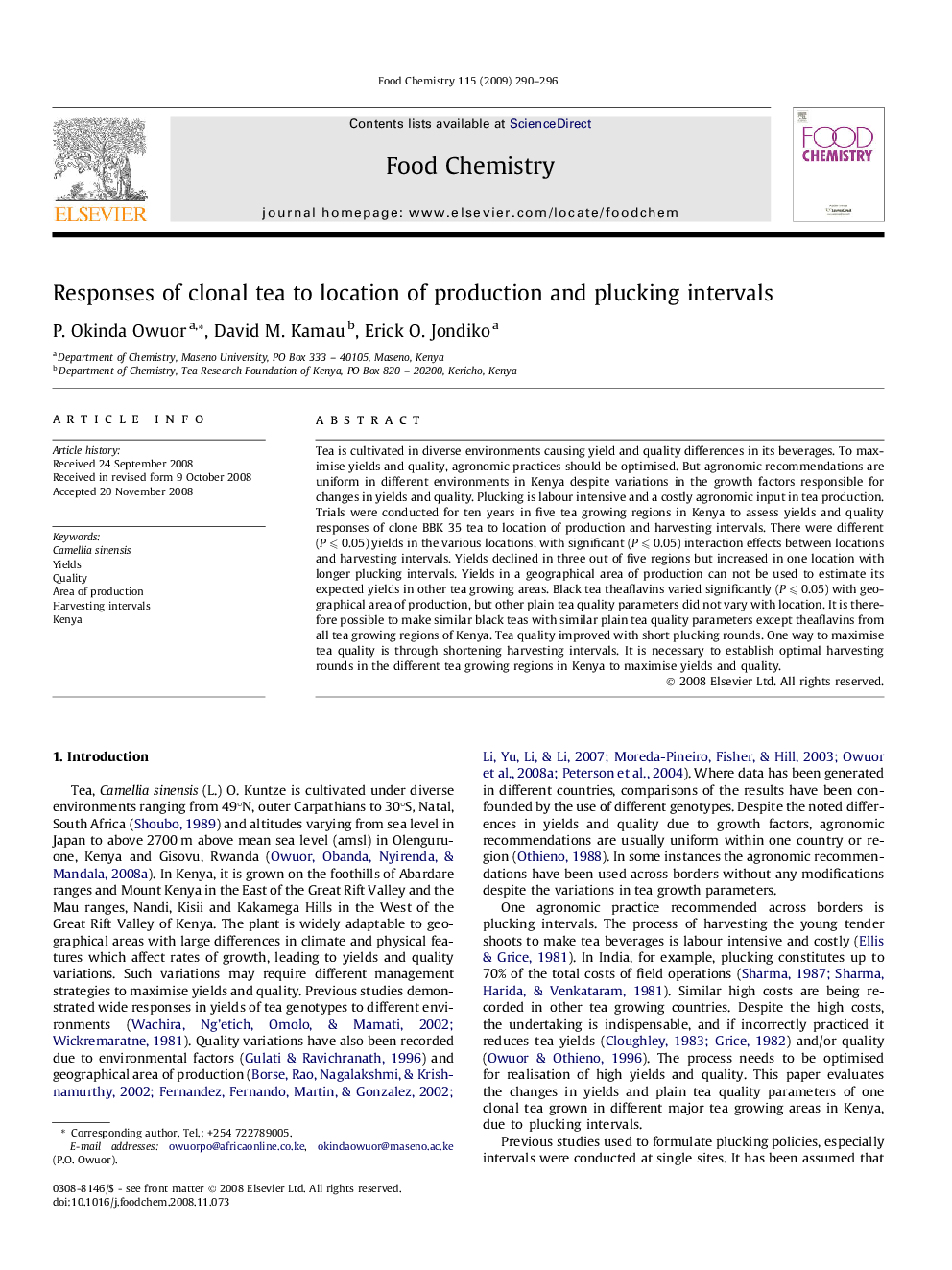| کد مقاله | کد نشریه | سال انتشار | مقاله انگلیسی | نسخه تمام متن |
|---|---|---|---|---|
| 1188649 | 963493 | 2009 | 7 صفحه PDF | دانلود رایگان |

Tea is cultivated in diverse environments causing yield and quality differences in its beverages. To maximise yields and quality, agronomic practices should be optimised. But agronomic recommendations are uniform in different environments in Kenya despite variations in the growth factors responsible for changes in yields and quality. Plucking is labour intensive and a costly agronomic input in tea production. Trials were conducted for ten years in five tea growing regions in Kenya to assess yields and quality responses of clone BBK 35 tea to location of production and harvesting intervals. There were different (P ⩽ 0.05) yields in the various locations, with significant (P ⩽ 0.05) interaction effects between locations and harvesting intervals. Yields declined in three out of five regions but increased in one location with longer plucking intervals. Yields in a geographical area of production can not be used to estimate its expected yields in other tea growing areas. Black tea theaflavins varied significantly (P ⩽ 0.05) with geographical area of production, but other plain tea quality parameters did not vary with location. It is therefore possible to make similar black teas with similar plain tea quality parameters except theaflavins from all tea growing regions of Kenya. Tea quality improved with short plucking rounds. One way to maximise tea quality is through shortening harvesting intervals. It is necessary to establish optimal harvesting rounds in the different tea growing regions in Kenya to maximise yields and quality.
Journal: Food Chemistry - Volume 115, Issue 1, 1 July 2009, Pages 290–296